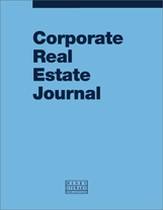Healthy choices: GSK’s internal and external partnering strategies for growth in Asia
Abstract
The practice of outsourcing various corporate real estate functions has become commonplace within multinationals, and during the past decade various models have evolved to become increasingly sophisticated. GSK drew on a culture of partnering within the core business to build a real estate team in APAC from the ground up through partnering. This paper explores the process of developing GSK’s ‘thin client’ model in Asia, the benefits identified (three pillars) and associated performance targets. Aspects of the model are illustrated through a services standardisation project case study. Three core themes emerged during implementation: achieving alignment on goals; developing Asia-based talent and capability; and understanding what ‘good’ looks like. The benefits, challenges and key learnings from the ‘thin client’ model are explored for each of these three themes. The contextual challenges faced by the GSK real estate team in Asia, which gave rise to the partnering model, are common to many global organisations with operations across the region. The success of the model requires focus on three core themes, which may provide useful insights to CRE practitioners leading similar partnering initiatives. The paper illustrates a holistic approach to building a corporate real estate team in Asia through a strategic, multi-dimensional approach to partnering. It presents a qualitative assessment of the real estate partnering model within GSK. At the time of publication it has not been qualified through external or alternate methods of examination.
The full article is available to subscribers to the journal.
Author's Biography
Paul Rogers leads GSK’s Real Estate & Facilities function In Asia Pac covering a portfolio of 400 sites in 21 countries. During the last 4 years Paul has transformed how the real estate function can strategically add value to the business improving GSK’s P&L and balance sheet whilst improving the customer experience. With more than 25 years in the pharmaceutical and FMCG industry, Paul is a proven supply chain and business leader, having led and delivered complex international transformational programmes of change across culturally and geographically diverse regions, to deliver improvements in business performance: improvements to the company’s P&L and balance sheet, improving customer service and speed to market.
Caroline Burns is widely recognised as a thought leader in workplace and workstyle transformation, and her extensive experience working, living and travelling in Asia is sought out by clients and colleagues worldwide. In addition to leading the Workplace Revolution consulting business, Caroline heads GSK’s APAC Workplace Change and Design team, working closely with Paul Rogers to support successful organisational and workplace change initiatives within GSK.
Jacqueline K. Cupper is an internationally experienced multi-site service specialist with B2B and B2C operations, marketing and strategic development career path. She is highly-regarded for her expertise in simplifying operating models by developing a deep understanding of the user requirements. Jackie is currently focussed on the impact of services within the workplace in relation to company culture and the employee experience.
Dominic Monkman has deep experience within branded environments where he has been accountable for the commercial reality of understanding customer behaviours. He has specific expertise in identifying the commercial implications of the customer experience from a facilities management perspective, and ways in which the alignment with service partners adds value to both parties. Dominic is currently engaged with ensuring standardised services can be delivered to customer expectations by reducing the complexity of access to those services.
